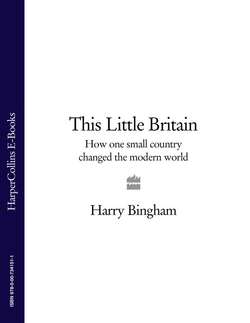Читать книгу This Little Britain: How One Small Country Changed the Modern World - Harry Bingham - Страница 13
Potato as in
ОглавлениеThat’s now every letter of Shaw’s potato accounted for. Shaw himself so disliked the mess of spellings that he left money in his will for a prize to be awarded for the best new alphabet to take care of English spelling. The winner was a chap called Kingsley Read. As Read saw it, a big part of the problem with English spellings is that there are too few letters for the number of sounds they need to make. There are forty-eight distinct sounds in English, and only twenty-six letters to do their work. The letter A, for example, has at least four jobs to do: ay as in able, a as in at, ah as in alms and or as in all. If English is to be easy to spell, then there should be one sound to a letter, one letter to a sound. Read’s alphabet, the Shavian alphabet, is a rather beautiful creation. It looks like this:
(That’s the start of the Universal Declaration of Human Rights, in case you missed it.) Alas, however, no one ever used Read’s alphabet. No one ever used Quickscript, his later modification of it. No one has ever used Readspel, Read’s final attempt to get people on his side. And no one ever will.
In the end, weird spellings are only a problem if that’s how you choose to see them. Part of the beauty of English is that its history is visible for all to see. It’s a hybrid between Anglo-Saxon rootstock and Franco-Latinate blooms. It’s a magpie language, acquisitive and reckless. It’s a human language, strewn with errors and eccentricities. It’s a living language, with vowels and pronunciations that shift from age to age. That won’t ever change. The question really is, who’d want it to?
